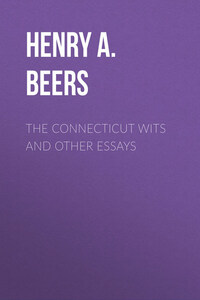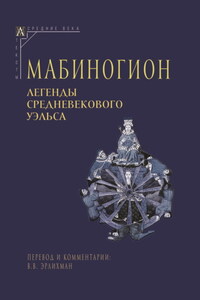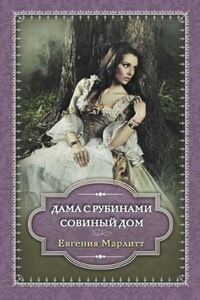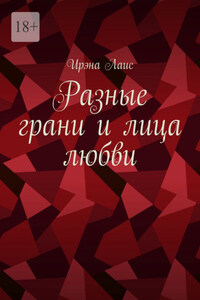IN the days when Connecticut counted in the national councils; when it had men in the patriot armies, in Washington’s Cabinet, in the Senate of the United States – men like Israel Putnam, Roger Sherman, Oliver Wolcott, Oliver Ellsworth, – in those same days there was a premature but interesting literary movement in our little commonwealth. A band of young graduates of Yale, some of them tutors in the college, or in residence for their Master’s degree, formed themselves into a school for the cultivation of letters. I speak advisedly in calling them a school: they were a group of personal friends, united in sympathy by similar tastes and principles; and they had in common certain definite, coherent, and conscious aims. These were, first, to liberalize and modernize the rigidly scholastic curriculum of the college by the introduction of more elegant studies: the belles lettres, the literae humaniores. Such was the plea of John Trumbull in his Master’s oration, “An Essay on the Use and Advantages of the Fine Arts,” delivered at Commencement, 1770; and in his satire, “The Progress of Dulness,” he had his hit at the dry and dead routine of college learning. Secondly, these young men resolved to supply the new republic with a body of poetry on a scale commensurate with the bigness of American scenery and the vast destinies of the nation: epics resonant as Niagara, and Pindaric odes lofty as our native mountains. And finally, when, at the close of the Revolutionary War, the members of the group found themselves reunited for a few years at Hartford, they set themselves to combat, with the weapon of satire, the influences towards lawlessness and separatism which were delaying the adoption of the Constitution.
My earliest knowledge of this literary coterie was derived from an article in The Atlantic Monthly for February, 1865, “The Pleiades of Connecticut.” The “Pleiades,” to wit, were John Trumbull, Timothy Dwight, David Humphreys, Lemuel Hopkins, Richard Alsop, and Theodore Dwight. The tone of the article was ironic. “Connecticut is pleasant,” it said, “with wooded hills and a beautiful river; plenteous with tobacco and cheese; fruitful of merchants, missionaries, peddlers, and single women, – but there are no poets known to exist there.. the brisk little democratic state has turned its brains upon its machinery.. the enterprising natives can turn out any article on which a profit can be made – except poetry.”
Massachusetts has always been somewhat condescending towards Connecticut’s literary pretensions. Yet all through that very volume of the Atlantic, from which I quote, run Mrs. Stowe’s “Chimney Corner” papers and Donald Mitchell’s novel, “Doctor Johns”; with here and there a story by Rose Terry and a poem by Henry Brownell. Nay, in an article entitled “Our Battle Laureate,” in the May number of the magazine, the “Autocrat” himself, who would always have his fling at Connecticut theology and Connecticut spelling and pronunciation (“Webster’s provincials,” forsooth! though pater ipse, the Rev. Abiel, had been a Connecticut orthodox parson, a Yale graduate, and a son-in-law of President Stiles), – the “Autocrat,” I say, takes off his hat to my old East Hartford neighbor, Henry Howard Brownell.
He begins by citing the paper which I have been citing: “How came the Muses to settle in Connecticut?.. But the seed of the Muses has run out. No more Pleiades in Hartford.”; and answers that, if the author of the article asks Nathanael’s question, putting Hartford for Nazareth, he can refer him to Brownell’s “Lyrics of a Day.” “If Drayton had fought at Agincourt, if Campbell had held a sabre at Hohenlinden, if Scott had been in the saddle with Marmion, if Tennyson had charged with the six hundred at Balaclava, each of these poets might possibly have pictured what he said as faithfully and as fearfully as Mr. Brownell has painted the sea fights in which he took part as a combatant.”
Many years later, when preparing a chapter on the literature of the county for the “Memorial History of Hartford,” I came to close quarters with the sweet influence of the Pleiades. I am one of the few men – perhaps I am the only man – now living who have read the whole of Joel Barlow’s “Columbiad.” “Is old Joel Barlow yet alive?” asks Hawthorne’s crazy correspondent. “Unconscionable man!.. And does he meditate an epic on the war between Mexico and Texas, with machinery contrived on the principle of the steam engine?” I also “perused” (good old verb – the right word for the deed!) Dwight’s “Greenfield Hill” – a meritorious action, – but I cannot pretend to have read his “Conquest of Canaän” (the diaeresis is his, not mine), an epic in eleven books and in heroic couplets. I dipped into it only far enough to note that the poet had contrived to introduce a history of our Revolutionary War, by way of episode, among the wars of Israel.
It must be acknowledged that this patriotic enterprise of creating a national literature by tour de force








